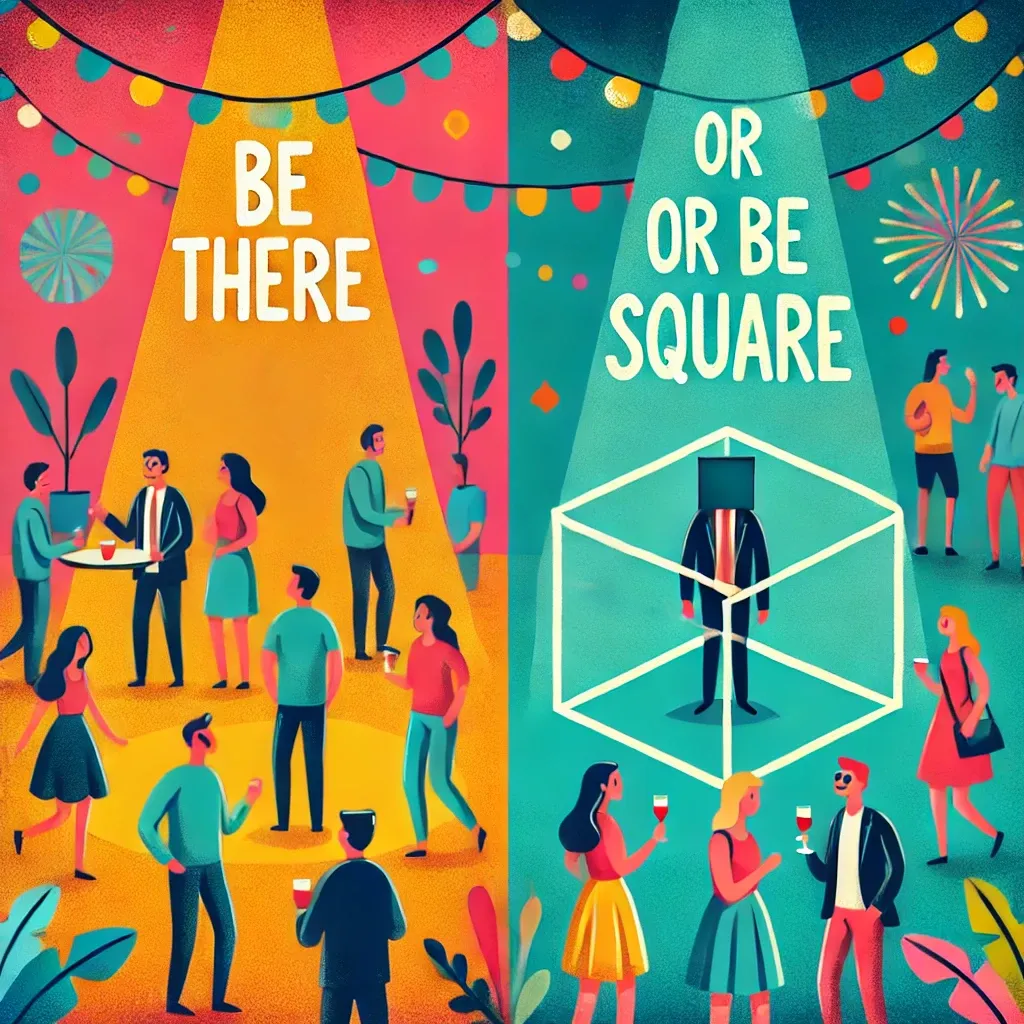What is the meaning of the phrase ‘be there or be square’?
Turn up to an event or be boring or no fun and be left out and excluded.
What is the origin of the phrase ‘be there or be square’?
The common phrase ‘be there or be square’ is believed to originate in the jazz scene in the United States in the 1950s.
Before this time, the word square was used to depict anything straightforward and measured, in contrast to the off-beat jamming sessions of jazz music, so in the 1940s, the term ‘square’ was used to refer to someone who failed to appreciate jazz music, and someone who was seen as out of touch with the trend.
The phrase ‘be there or be square’ was popularised by the 1950s. The meaning of the phrase ‘be there or be square’ expanded over time to mean ‘be there or be someone who doesn’t appreciate trending counter culture’, or in other words, someone who isn’t cool. With its catchy rhythmic appeal, it’s no surprise the phrase caught on.
Since its use in the jazz scene, the phrase has come up again and again in other contexts, including in the 1960s disco scene, and later in the 1970s and 1980s the punk rock scene.
If you don’t wish to offend someone by saying that they are boring or uncool, it would be best to avoid this phrase and to use an alternative phrase instead, such as ‘I hope you can make it’.
The phrase ‘be there or be square’ is best used when you expect the person or people to turn up to the event in question.
What are some notable uses of the phrase ‘be there or be square’?
The phrase continues to be used in literature, event promotion, and social media. It also appears in the film Grease, released in 1978 set in the 1950s, and in the American TV series Happy Days, which is also set in the 1950s.

